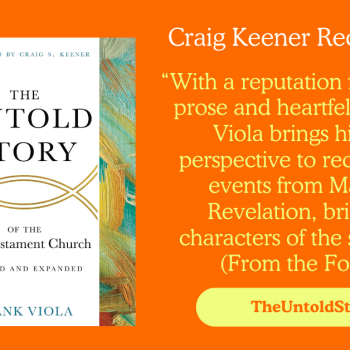Francis is known to have walked all the way to Egypt as the Crusades raged in order to attempt a truce with the Muslim Sultan of Egypt. He was not docile, but he was passionate about birds and flowers. He said, "If you have people who exclude any of God's creatures from the shelter of compassion and pity, you have those who will deal likewise with other people." Francis cared intensely about creation, but was not an environmentalist for environmentalism's sake. For Francis, all of his passion for creation derived from his passion for the Creator. The creation, reflecting its Creator, resonated with God's powerful presence and thus elicited worship.
It's the kind of praise of which we read in Psalm 148: "Praise the LORD from the heavens, praise him in the heights above. Praise him, all his angels, praise him, all his heavenly hosts. Praise him, sun and moon, praise him, all you shining stars. Praise him, you highest heavens and you waters above the skies. Let them praise the name of the LORD, for he commanded and they were created. He set everything in place for ever and ever; he established an order that shall never change."
Psalm 148 is a psalm of summons; it inventories all things and orders them into allegiant submission. Note however that the creation is not cause for praising God, but instead creation is summoned itself to join the worshipping congregation. The voices of people alone are insufficient. "Praise the LORD from the earth, you great sea creatures and all ocean depths, lightning and hail, snow and clouds, stormy winds that do his bidding, you mountains and all hills, fruit trees and all cedars, wild animals and all cattle, small creatures and flying birds." Only at the end are humans included. "The kings of the earth and all nations, you princes and all rulers on earth, young men and maidens, old men and children. Let them praise the name of the LORD, for his name alone is exalted; his splendor is above the earth and the heavens." To praise God is to join in a cosmic choir glorifying God.
"O how happy and blessed are those who love the Lord," Francis said, "and do as the Lord himself said in the gospel: You shall love the Lord your God with your whole heart and your whole soul, and your neighbor as yourself. Therefore, let us love God and worship him with pure heart and mind. This is his particular desire when he says: True worshipers adore the Father in spirit and truth. For all who adore him must do so in the spirit of truth."
The tendency when speaking of worship is to envision Christians gathered on Sundays enthusiastically singing songs about God to God, after which we typically go home and go about our business. But to praise God goes far beyond enthusiastic singing. Praise denotes a reordering of reality, a literal "casting down" of self and everything else in the face of God's supremacy.
Francis said that "Above all the grace and the gifts that Christ gives to his beloved is that of overcoming ourselves." To praise is to be humbled by God. It is to declare our allegiance, but also our defiance. In praise we resolutely dismiss all other gods and decisively break with all other loyalties and claims of truth that counter God's will and purposes—consumerism, militarism, materialism, nationalism, secularism, and all the other isms; praise denounces them all by exalting God above them all.
In a world where affluence and influence are prized, praise bears witness that life does not consist of achievement, control, self-esteem, objectivity, or even reasonableness. After all, what is reasonable, humanly speaking, about praise? What's reasonable about ceding your entire life over to one whom you cannot touch or see? What's reasonable about following the radical, counter-worldly, unpopular ways of Jesus?
Praise summons us to trust by faith in mystery, gift, and wonder—a trust that often confounds our ability to understand. But as Augustine once explained, "We are talking about God; so why be surprised if you cannot grasp it? I mean if you can grasp it, it isn't God. When it comes to God, let us rather offer a devout confession of ignorance instead of any brash profession of knowledge."
One day, St. Francis was returning from the forest, where he had been in prayer, and a friend named Brother Masseo walked over to him and asked, half jokingly: "Why all the rage?" To which Francis replied, "What are you talking about?" Brother Masseo said: "Why is it that the whole world seems to be running after you and everyone wants to see you and hear you and be like you? You're not that good looking and you're not very smart. You're not of noble descent. So why is everybody running after you?"
On hearing this, Francis was thrilled. He lifted his eyes toward heaven and reportedly stood for a long time, his heart absorbed in worship. Then giving thanks, he turned to Brother Masseo and said, "Do you want to know why people run after me? Do you want to know why they seek me out? Do you want to know why so many seem so eager to hear what I have to say? I'll tell you why. It is because the Lord—who is in heaven and who sees the evil and the good in all places—the Lord has laid his holy eyes on me and found no creature more vile or insufficient than I am. And thus to accomplish the wonderful work He intends to do—for God has chosen the foolish things of the world to put shame to the wise—He has chosen me, to confound all strength, all beauty, all greatness, all noble birth, and all science, that people may know that every virtue and every good gift comes from him, and not from any creature, that none may boast before God; but if any one boasts, let him boast in the Lord, that praise and honor may belong to Him alone forever."





